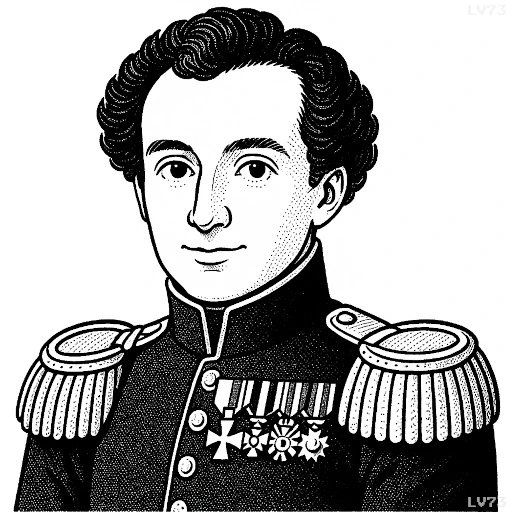“I shall proceed from the simple to the complex. But in war more than in any other subject we must begin by looking at the nature of the whole; for here more than elsewhere the part and the whole must always be thought of together.”

- July 1, 1780 – November 16, 1831
- Born in the Kingdom of Prussia (now Germany)
- Military officer and military theorist
table of contents
Quote
“I shall proceed from the simple to the complex. But in war more than in any other subject we must begin by looking at the nature of the whole; for here more than elsewhere the part and the whole must always be thought of together.”
Explanation
In this quote, Clausewitz emphasizes the importance of understanding the bigger picture in warfare, arguing that war cannot be properly understood if we focus only on isolated elements. While it is common in many disciplines to build understanding from simple concepts to more complex ones, Clausewitz insists that in war, the interdependence of all parts must be considered from the very beginning. This is because war is a complex system where individual battles, strategies, and tactics are intricately linked to the broader political and strategic context. By focusing on the whole, leaders can better understand how each part contributes to the overall effort and avoid making decisions based on partial or incomplete information.
This idea is especially relevant to modern warfare, where technological advancements, such as cyber warfare, drone strikes, and information operations, have further complicated the battlefield. A successful military campaign today requires an understanding of how military, political, economic, and cultural factors intertwine. For example, in the Vietnam War, the U.S. military often failed to account for the larger cultural and political realities of Vietnam, leading to a series of tactical successes but strategic failures. Similarly, in the ongoing Russian invasion of Ukraine, the military actions must be understood not only in terms of battlefield tactics but also in relation to broader political, diplomatic, and economic considerations.
Clausewitz’s focus on the whole suggests that military leaders must always consider how their actions impact both the immediate situation and the larger strategic objectives. This requires flexibility and an ability to adapt to changing circumstances. Understanding how individual actions contribute to the overall political and military objectives can make the difference between strategic success and failure. Clausewitz’s insight reminds us that holistic thinking is critical, as ignoring the interconnections between the parts can lead to unforeseen consequences and missed opportunities.
Would you like to share your impressions or related stories about this quote in the comments section?
